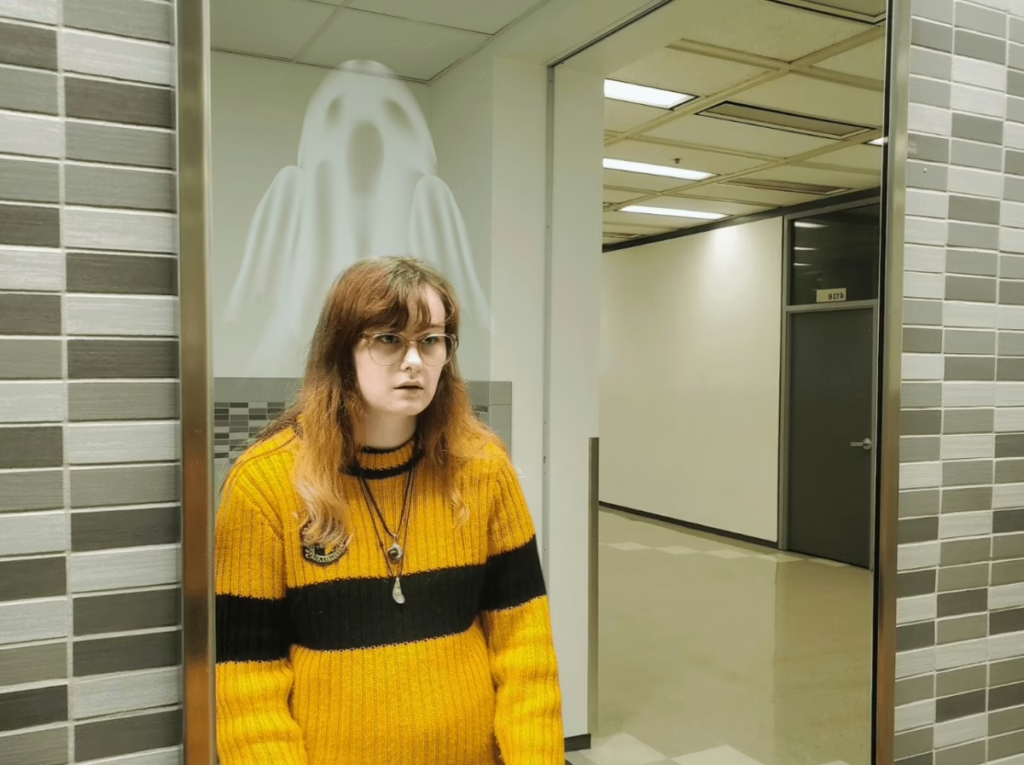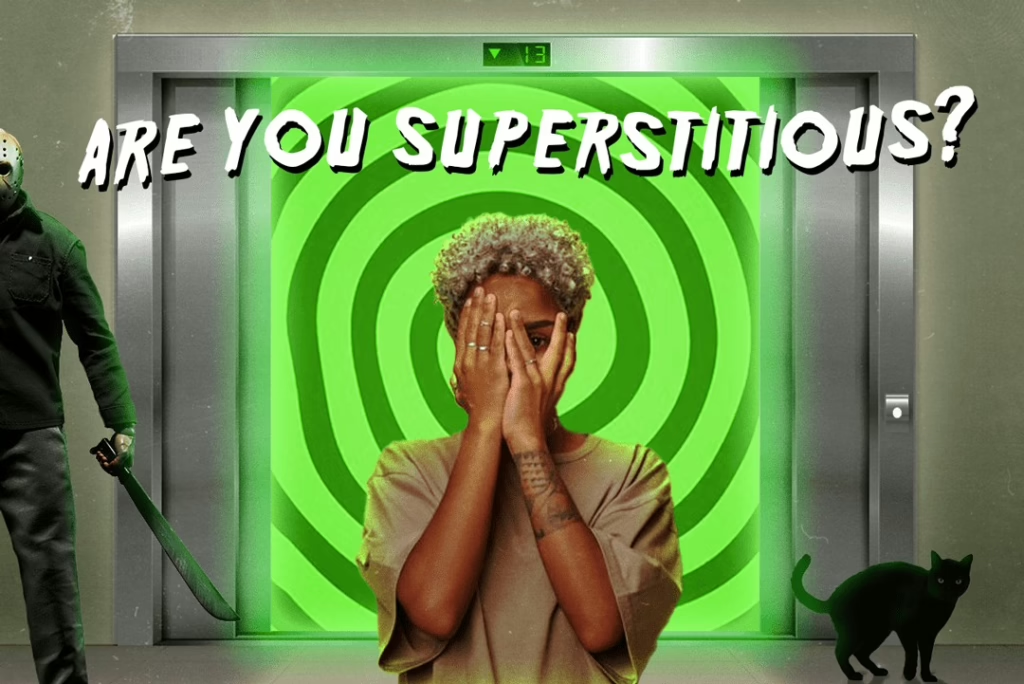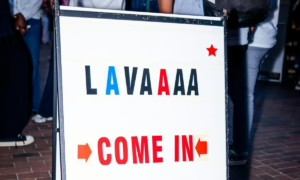Strolling through the Emerald City on a fall afternoon, you’re sure to see homes adorned with signs that say, “SCIENCE IS REAL,” the all-caps lettering transforming the simple declaration into a cri de guerre. We’re at war with backwards-thinking bigots, it says. We’re on the right side of history because we’re progressive. And yet, should you set foot in the elevator of any tall Seattle building (with the tempting-of-fate exception of the downtown Westin Hotel), you will see that the floors of the building skip from the 12th story to the 14th story, entirely omitting the 13th story, which makes us at the Collegian ask, what is the story?
Every professor’s favorite website, Wikipedia, tells us that the 13th floor “is often omitted in countries where the number 13 is considered unlucky.” Fear of the number 13 is so common in the United States, in fact, that we even have a fancy Greek word for it, triskaidekaphobia. Remember that the next time you watch Jeopardy.
Even at our beloved Seattle Colleges, a bastion of forward-thinking students and faculty, it seems we just can’t escape our superstitious ways. Second year graphic design student at Seattle Central College, Charley Gracie (they/him), says, “You’re not supposed to keep a mirror facing your bed because it can allow spirits into your space.”
“Mirrors are very spiritual in terms of use in rituals,” they go on to say. “They can open up a portal you might not be aware of and allow spirits into your space. I have a mirror in my closet and if I lie down without closing the closet door, I have to get up and close it or else I won’t feel comfortable.”

Anyone who owns a home or pays rent in Seattle would have to agree that you need money to find comfort. That being the case, “never put your purse on the floor,” warns Chef Kären Jurgensen of the Seattle Culinary Academy, “or you will be poor all of your life.” (One might also say, never move to Seattle or you will be poor all of your life, but that’s another story).
Even our science teachers are floored by magical thinking from time to time. Cynthia Dix, who teaches Anatomy & Physiology at South Seattle College, tells us her mother “was a first-generation Croatian-American.” Her mother told her not to step over her infant daughter while she was “lying on the living room carpet” lest she “grow up to be short (in stature).” When her mother saw her do just that, Dix says, “She told me to step back over my daughter but apparently it didn’t help.” She explains that her now adult daughter stands at 5’2.”
Some superstitions seem like a tall order. Former Seattle Central student, Hedda Jensen, says that “whenever someone that I don’t know, or don’t know very well, comes over to my house I always wash [the outside] of my door after they leave, just with a towel and a rag to cleanse the energy off.”
Other superstitions make the Collegian’s faculty advisor smile because he’s an English teacher who loves language and loves to ask why the human mind gets so stuck on the supernatural. He loves the story of Van Pham (she/her), a former student at Seattle Central College, who shares that in Vietnamese, the word for “beans” is pronounced as “đậu,” which happens to be a homophone of the word “pass” when translated back into English. This linguistic coincidence has led people to believe that eating beans, especially red beans, will bring luck and help them pass their exams.
“When I was in school,” Van says, “my mother made red bean soup for me every time before an exam.”
“To pass” in English may refer to tests, but sometimes it means “to die.” We’re lucky at Seattle Colleges because we learn that folks from all around the world share many beliefs, including a healthy fear of death. “When I lived in Japan,” Thomas Davis, who works in the International Education Program at Seattle Central, tells us, “I was told I should not whistle, cut my nails, or do laundry at night, as these would attract snakes, ghosts, or early death, respectively.”
“It was explained to me that in olden days, criminals (for which snakes are an idiom) used to communicate by whistling, while it was believed that the nocturnal spirits of ancestors would cling to family kimonos if they were hung outside to dry and ‘cutting nails’ would ‘shorten life.’”
“Both expressions are pronounced ‘yozume,’” Davis says, explaining that the Japanese “‘yozume’ means both ‘night nails’ (夜爪) and ‘pass away’ (世詰め).”
Fear of passing may inspire Roman Catholics to cross themselves. It may also engender strange behavior every time we cross a bridge. “I take a deep breath before I knowingly cross any bridge,” says Seattle Central tenured English faculty, Desiree Simons (she/her), who holds both a bachelor’s and a master’s of science. “If I can hold my breath for the length of the bridge, I will~” she says. What’s the reason for the breathless crossings? “It’s the fear of drowning,” Simons says.

You don’t need to be a Jungian dream analyst to understand the symbolic value bridges hold in the human mind. In fact, when beloved pets die in the United States many people imagine them crossing the “rainbow bridge” on their way to pet paradise. Bridges connect us to one another and we imagine crossing them as we pass from one phase of life to another. Sometimes we fear all of this crossing and passing so much that it inspires religious belief. Other times it inspires us to animate celestial bodies with powers greater than ours.
“There is going to be an eclipse soon,” says Shan-e-Zahra Alavi (she/her), who serves as faculty in transitional studies at South Seattle College, “so this is a good time to share a superstition my mother and grandmothers from Pakistan have shared with me. People who are pregnant should never try to look at an eclipse. It will bring bad luck to one’s pregnancy.”
“I don’t believe it,” Alavi clarifies, but fear of calling forth “the evil eye” has thus far prevented her from testing it.
We hear about and see so many bad things happening, it’s no wonder we invent rituals and actions that we believe can stop the carnage. Thea Mesling and Alessia Manay (she/her), both current Seattle Central students, knock on wood when they say something but don’t actually want it to happen. Mesling doesn’t really believe knocking on wood will make a difference, but she says “it’s better safe than sorry.” On the other hand, Manay says that for her, “it works.”
Traditionally, humans have turned to rituals and sacrifices hoping to influence divine powers to look favorably upon them. Underlying this belief in divine power seems to be the even more pervasive belief that our actions can influence this power.
“I am a Creole woman (French, Indigenous, and Hispanic) born and raised in New Orleans, Louisiana,” says LaToya Johnson (she/they). Johnson, who teaches in the department of arts, humanities and social sciences, goes on to say, “Many of my family’s superstitions were centered around religion and the concept of the ‘devil.’ My family is Catholic and as a child, I was taught to never question God. To question God is to question ‘His work,’ hence bringing about terrible omens for ‘blessings.’”
On the other hand, Dr. David Quintero, who teaches Spanish at Seattle Central, describes a sense of powerlessness inspired by religious dogma. Growing up, his family believed in the Biblical creation story and in “invisible gods and angels.” He says they also held the belief that “some people were at the top of human intelligence.” Making matters worse for those of us who feel closer to the bottom of human intelligence, Quintero’s family believed “there is nothing one can do to change the order of things.”
The helplessness that a sense of fate or a feeling of being doomed to mediocrity might cause may be another explanation for why we have so many superstitions. For some clarity on the human psyche, we turn to Seattle Central tenured psychology faculty, Shaan Shahabuddin.
“One theory that comes to mind is self-determination theory (Deci & Ryan, 1985),” Shahabuddin explains. “This theory states that people either rely on an “internal” locus of control (they are in control of their behaviors) or an “external” locus of control (something outside of them is controlling their behaviors). I say “behaviors”, but it can also mean “outcomes” and “efforts.” People who have an internal locus of control are more likely to attribute their success to their own hard work, while those with an external locus are likely to attribute their success (and failures) to something outside of their control (God, a higher power, spirits, the universe, energy forces, luck/chance/fate, etc.).”
“Regarding superstition,” says Shahabuddin, “it seems like we take on both loci of control. The ‘external’ is that there are forces surrounding us that lead to certain outcomes (such as a black cat representing bad luck). But at the same time, we can control this (internal locus of control) by avoiding black cats when we see them. So ‘luck’ might be outside of our control, but superstition tells us that we can control it if we have the knowledge of the superstition.”
“I think control allows us comfort in a world that’s chaotic,” Shahabuddin concludes. “Anything can happen to anyone at ANY time! This is super scary, so even a fictitious level of control may relieve some stress/anxiety.”
Shahabuddin can’t help but put a scientific spin on a superstition from his own family’s native Pakistan that prohibits mixing seafood with dairy, especially milk, which he calls “a big ‘no no.’”
“The belief is that our skin will have rashes,” he says. “I grew up in Houston where there is a HUGE Pakistani community, and several people I knew believed in this. I don’t really believe this anymore, but I still avoid it when I can.” Sophia Bruscato, a current Central student and part of the Collegian’s team, shares that there is also a very strong belief in her home country, Brazil, about mixing mangoes and milk, “People believe that if you eat mango and drink milk you will die. This comes from an old belief spread during Brazil’s slavery years, where milk was scarce and expensive, while mangoes weren’t. So landlords would tell their slaves not to consume milk.”
Old habits die hard, Shahabuddin says, and it occurs to us at the Collegian that another reason we cling to superstitions might be the sense of comfort we find in community. When we share beliefs with others we begin to define an in-group. Simply put, we find belonging in belief, even if the belief is not an accurate reflection of reality.
Even if superstitions are rooted in fear and the stress it causes, we might take comfort in them. We might see from the examples we share in honor of Friday the 13th that being human means being subject to forces beyond our control. When we begin to examine what frightens us as human beings we also begin to see our similarities. Whether our families come from Africa, the Americas, Asia, Australia, or Europe, we’re all endowed with the propensity to believe. Maybe our beliefs engender a positive sense of belonging. Maybe they help us bridge the gaps that divide us. Even if that means we sometimes have to hold our breath.







Be First to Comment